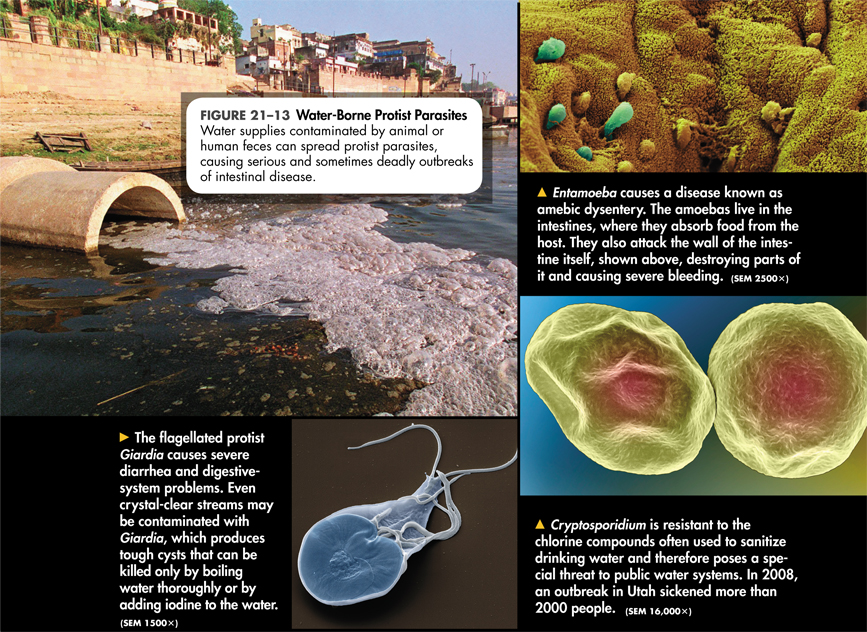Parasites and Disease Unfortunately for humans and some other organisms, protists cause a number of very serious diseases.  Parasitic protists are responsible for some of the world's most deadly diseases, including several kinds of debilitating intestinal diseases, African sleeping sickness, and malaria.
Parasitic protists are responsible for some of the world's most deadly diseases, including several kinds of debilitating intestinal diseases, African sleeping sickness, and malaria.
▸ Intestinal Diseases Water-borne protists are found in streams, lakes, and oceans. Most cause little harm to humans, but some of these organisms—like those shown in Figure 21–13—are parasites that cause serious problems.
▸ African Sleeping Sickness Flagellated protists of the genus Trypanosoma cause African sleeping sickness. Trypanosomes are spread from person to person by the bite of the tsetse fly. They destroy blood cells and infect other tissues in the body, including nerve cells. Severe damage to the nervous system causes some individuals to lose consciousness and lapse into a deep and sometimes fatal sleep, from which the disease gets its name. Control of the tsetse fly and the protist pathogens that it spreads is a major goal of health workers in Africa.
 In Your Notebook How do parasitic protists use passive movement to spread disease? Give examples.
In Your Notebook How do parasitic protists use passive movement to spread disease? Give examples.
Table of Contents
- Formulas and Equations
- Applying Formulas and Equations
- Mean, Median, and Mode
- Estimation
- Using Measurements in Calculations
- Effects of Measurement Errors
- Accuracy
- Precision
- Comparing Accuracy and Precision
- Significant Figures
- Calculating With Significant Figures
- Scientific Notation
- Calculating With Scientific Notation
- Dimensional Analysis
- Applying Dimensional Analysis





